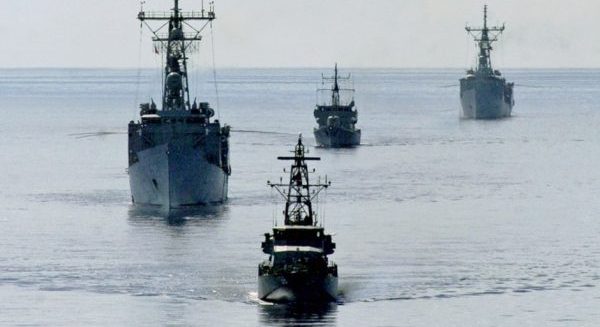In the latest paper by Oceans Beyond Piracy, OBP addresses the issue of Vessel Protection Detachments (VPD), as some flag states began authorizing and deploying uniformed military personnel to embark on commercial vessels transiting the Red Sea and Indian Ocean.
VPDs introduce military personnel, equipment, and activities directly into the commercial maritime sector, onboard private vessels.
This infuses sovereign state military operations into commercial activities. The most prominent VPD activities are those conducted by Italian and Dutch governments, although other countries like Estonia, Lithuania, Serbia, Croatia, Finland, and Ukraine also deployed VPDs either on their own flagged vessels or as part of coalition operations.
The Italian Ministry of Defense used VPDs to protect Italian flag commercial vessels passing the High Risk Area (HRA)1 between 2011 and 2015. Following 35 attempted and five successful pirate attacks against Italian commercial vessels transiting the waters off the Horn of Africa between 2009 and 2013, Italy passed Law 130/2011 which offered ship owners with Italian flagged vessels transiting through the HRA the possibility to request the presence of a VPD on board.
The Netherlands is using a considerable number of VPD program which has continuously operated since 2012. The Dutch constitution guarantees the state’s monopoly on the use of force, thus private security personnel are prohibited from bearing arms, and therefore Dutch flagged vessels are legally forbidden from embarking private security for protection anywhere in the world. As a result, the only legal option available to Dutch ship owners at the time was to ask for protection, in the form of VPDs, from the Dutch government.
A special category of VPDs are operating in the Indian Ocean region, the protection of World Food Program (WFP) and African Union Mission in Somalia (AMISOM) convoys, which deliver food and aid into Somalia.
The WFP is the food assistance branch of the United Nations, and AMISOM is a peacekeeping mission operated by the African Union in Somalia with approval of the United Nations.
Other countries like Lithuania, Serbia, Croatia, Estonia, Finland and Ukraine provide VPDs to support EUNAVFOR’s Operation Atalanta protection mission of World Food Program deliveries.
By embarking a VPD directly onto commercial vessels, warship escorts for WFP vessels become unnecessary, allowing more EUNAVFOR warships to remain on station and continue other important counter-piracy missions, OBP reported.

Finally, VPDs do not come without any challenges, which can be summarized as following:
- Immigration and customs clearances for personnel, firearms, ammunition, and other security equipment entering and exiting national territory,
- Communication with local government and military authorities, to ensure safe transportation to and from Vessel RV point and landing site,
- Coordination with the protected vessel to meet at the pre-selected RV point on schedule,
- Ensuring timely and consistent transportation to and from the protected vessels to the host vessel or seaport.
You can view the full report by OBP below




























































